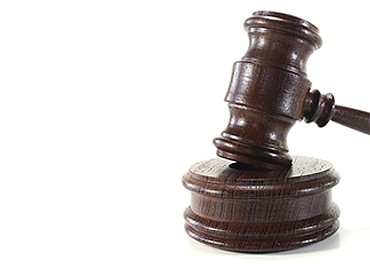I stumbled on retired Bankruptcy Judge Charles Case’s video for folks considering bankruptcy relief. It’s the first time I said “amen” after a video. Click here to watch the video. His important points include: This is your bankruptcy case — pay attention — take charge of it. Timing is important to preserve your rights. Fill forms completely and honestly. Bankruptcy is complicated, so hire an experienced lawyer. Don’t think you can afford a lawyer? Most offer a free initial consultation. We also offer a free telephone consultation. We’ll discuss if…Read More

The Scenario In 2010, you won a state court judgment against “Joe” for breach of contract. In 2017, “Joe” filed for Chapter 7 bankruptcy. Should you be allowed to object to Joe discharging your judgment by now asserting that Joe’s debt to you arose from a fraud? Most bankruptcy courts say you can. Bankruptcy courts frame this issue in statute of limitations and issue/claim preclusion theories. The crux of issue/claim preclusion is “where was this theory years ago when we first fought it out?” Bankruptcy Courts favor you, the plaintiff.… Read More
![An Unappealable Contempt Decision Providing Rachmones[1]](https://www.bankruptcystrategies.com/wp-content/uploads/2020/08/An20Unappealable20Contempt20Decision20Providing20Rachmones20DPLIC2059532851-thumb-500x332-86415-thumb-350x232-86425.jpg)
The American Bankruptcy Institute’s (“ABI”) VOLO Project had me synopsize the Second Circuit Court of Appeals’ decision in U.S.A. v. Kerr-McGee Corp. (In re Tronox Inc.).[2] The sixty-two-page opinion boiled down to two “holdings.”[3] They are: a.) Claims derived through a debtor are bankruptcy estate property which only a trustee can assert; b.) A District Court order on a contempt motion which: 1.) enforced an existing injunction; and 2.) made no contempt finding nor sanctions award was not a “final order”[4] subject to immediate appeal. To some bankruptcy practitioners, the second holding may… Read More

When you’re floundering in debt, having some of it canceled or forgiven sounds great. Be careful. You may be trading a junk-yard dog for Godzilla. To the Internal Revenue Service (the “IRS”) forgiven debt creates Cancellation of Debt Income (“CODI”).1 CODI is taxable unless the discharge: (A) occurs in a bankruptcy case; (B) occurs when the taxpayer is insolvent; (C) is of qualified farm indebtedness; (D) is of qualified real property business debt of anyone other than a C corporation; or (E) is of debt from a qualified principal residence… Read More

Over one month ago, we had a big hearing in a big fight over the following facts: A.) There was an adversary proceeding in a chapter 11 case (“Case 1”). B.) The adversary proceeding was settled during the chapter 11 case.1 C.) The non-debtor party defaulted under the stipulation. D.) The chapter 11 case was dismissed without preserving any entered orders.2 E.) Two years later, the same debtor filed a chapter 7 case (“Case 2”). F.) The Case 2 chapter 7 trustee is suing for the debtor’s rights under the… Read More

Bankruptcy relief is not a sign of failure. It expresses hope. There is life after bankruptcy. Potentially, a better life. Bankruptcy discharges are “fresh starts” for individuals to build futures, where their pasts are not repairable. But, a debtor’s past can prevent a bright, post-bankruptcy future. Dischargeability and Discharge Bankruptcy Code §§ 523 and 727 provide means for limiting or eliminating that fresh start. Section 523 identifies specific debts which can be excluded from discharge. These debts are generally from significant breaches of duty (e.g., not paying taxes or spousal… Read More

Imagine thinking you’ve put a bad business experience behind you, only to learn its ghost is attacking you. That’s the specter of poorly planned entity chapter 7 bankruptcies. Unfortunately, most bankruptcy cases for entities which start as Chapter 7 cases suffer from this. Entities Prudent entrepreneurs conduct business through entities. Popular entity forms include a.) corporations, b.) limited partnerships, and c.) limited liability companies.1 Conducting business through an entity protects the business owner from most of the business’ creditors.2 The risk of loss is limited to their capital contributions to… Read More

Last week, I was given seven minutes for a presentation to some smaller business owners. Wondering what wisdom I could impart in that brief period, I created the following outline. They thought I should share it with the blogosphere. I hope you find it helpful. “Any ass can make a fortune. The trick is keeping it.” ~ The Sage of Centennial 1. Don’t sign a guarantee you wouldn’t want to pay. 2. But, get one if you can. 3. Don’t take payment from someone who does not owe it to you.… Read More
![Avoiding Clouds on Homestead Exemptions[1]](https://www.bankruptcystrategies.com/wp-content/uploads/2020/08/Avoiding20Clouds20on20Homestead20Exemptions20DPLIC2039862873-thumb-350x233-79770-thumb-350x233-79755.jpg)
We represent a debtor with a substantially younger, non-debtor spouse and equity in their home, exceeding the debtor’s homestead exemption. The home is owned as tenants in the entireties. This means that the surviving spouse inherits the property free and clear of the deceased spouse’s creditors. The spouse’s youth dissuaded the chapter 7 trustee from trying to sell the home free and clear of both owner’s interests.[2] The trustee got creative. She tried selling just the debtor’s interest in the house. The buyer gets the right to live with the… Read More
I’ve been working on returning to the blogosphere with interesting bankruptcy stuff. Unfortunately, last Sunday’s presidential debate irked my military historian. So, here’s my damn fact-check and opinion. On October 9, Donald Trump criticized Hillary Clinton again for disclosing her strategy against ISIS. He said that Generals Douglas MacArthur and George Patton are turning in their graves for this disclosure. Trump wants to take the enemy by total surprise. Trump’s disdain for the rule law is revealed anew. ISIS is dug into urban areas, hiding behind civilians. Advance notice to…Read More

